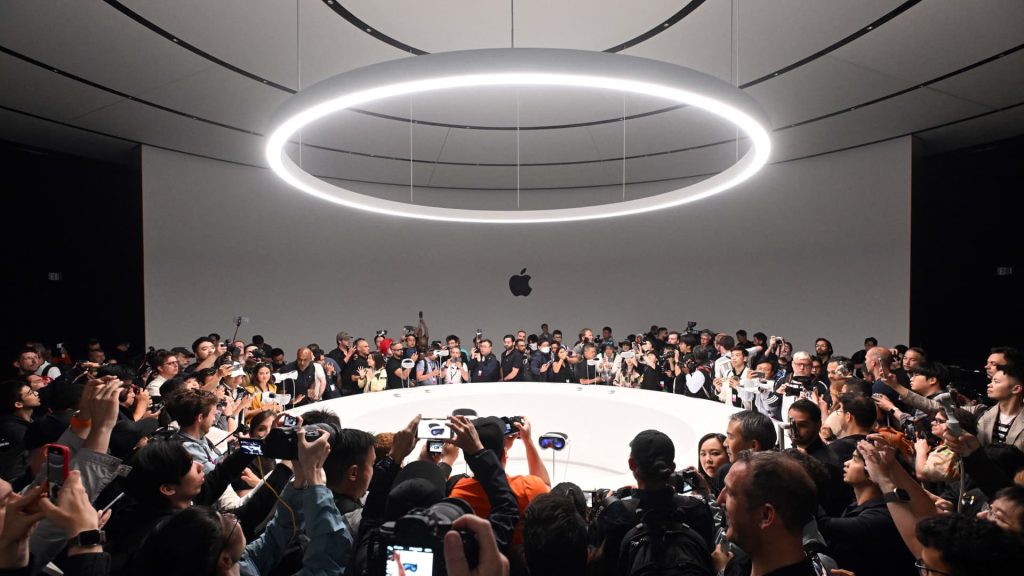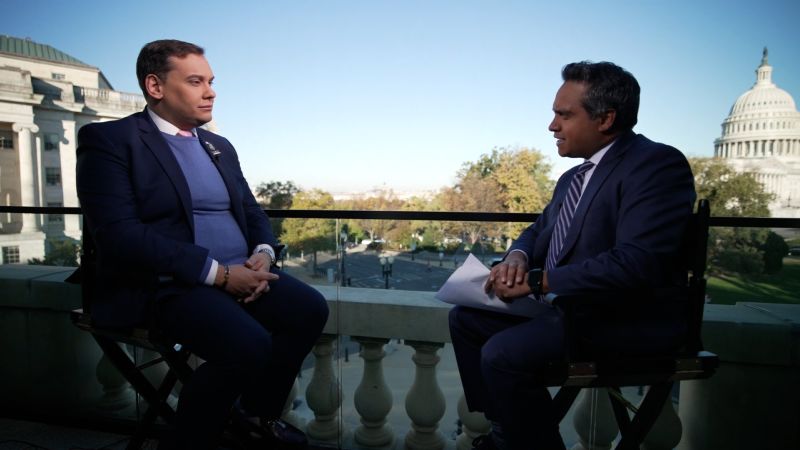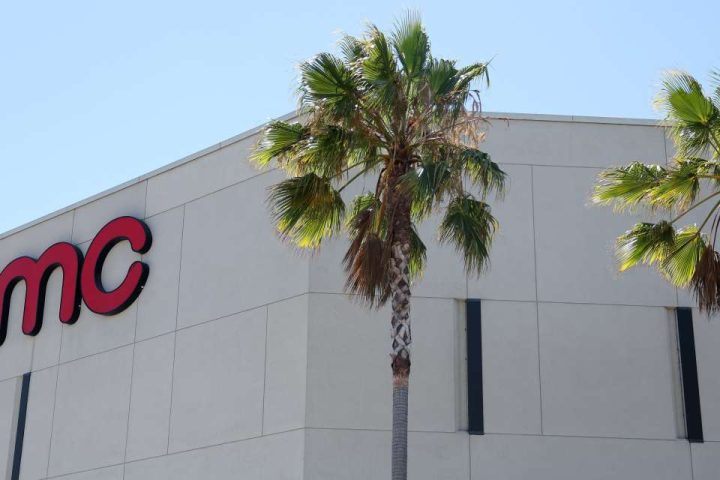Berkshire Hathaway’s
operating earnings surged 40% to a record $10.8 billion after taxes in the third quarter. The figure beat Wall Street estimates on a per-share basis.
The conglomerate headed by Warren Buffett saw sharply higher insurance underwriting profits and increased investment income on its huge cash holdings. The prior peak in operating profits came in the second quarter, when they totaled $10 billion.
Berkshire Hathaway (ticker: BRK/A, BRK/B) had lower earnings at its railroad and utility businesses.
Burlington Northern Santa Fe had a 15% drop in after-tax profits in the third quarter, to $1.2 billion due to lower freight volumes and higher nonfuel operating costs. The Berkshire railroad unit had similar financial performance to its chief rival
Union Pacific
(UNP).
The firm’s overall results, which reflect paper investment gains and losses, showed an after-tax loss of $12.8 billion, compared with a loss of $2.8 billion in the year-earlier quarter.
The loss reflects a pullback in the stock market in the third quarter and, in particular, a 12% decline in
Apple
(AAPL), which makes up nearly half the Berkshire equity portfolio.
Buffett tells investors to focus on Berkshire’s operating earnings excluding the unrealized gains or losses on the equity portfolio because those underlying operating profits show how the company’s businesses are performing.
Berkshire bought back $1.1 billion of stock in the third quarter, compared with $1.4 billion in the second quarter and $4.4 billion in the first three months of 2023.
Investors focus on Berkshire’ stock repurchases as an indication of whether Buffett views the stock as inexpensive. The latest repurchases indicate that Buffett didn’t think the stock was particularly cheap for much of the third quarter, though he seems to have gotten more bullish of late.
Barron’s estimates that Berkshire bought back about $800 million of stock in October through the 24th of the month, the date of the 10-Q report. We compared the share count on Oct. 24 to the one on Sept. 30. That indicates Buffett grew more enamored of the stock as it declined in October. The Class A shares recently bottomed just above $500,000.
Berkshire’s Class A shares were up 0.7% Friday to $533,815 and are up 14% in 2023, about a percentage point behind the
S&P 500
index.
Berkshire’s after-tax operating earnings rose 42% in the third quarter to about $7,436 per class A share, Barron’s estimates, easily topping the FactSet consensus of $6,540 per share.
Berkshire was sitting on a record $157 billion of cash and investments at the end of the third quarter, up from $147 billion on June 30. Berkshire parks most of its cash in U.S. Treasury bills now yielding over 5%.
Berkshire earned a record $10.8 billion in the third quarter even after taking a $1.3 billion pretax litigation accrual for wildfire losses at one of the Western utilities owned by Berkshire Hathaway Energy, its big utility business. As a result, BHE after-tax profits fell to about $500 million in the period from $1.6 billion in the third quarter of 2022.
Berkshire, unlike most companies, doesn’t report “adjusted” earnings that exclude what many companies would view as one-time charges or gains. Berkshire did have a one-time foreign exchange gain of $447 million in the third quarter related to the appreciation in the dollar against yen. It has sizable yen debt outstanding, which it used to hedge its equity stake in five Japanese holding companies.
With an overall loss in the quarter, Berkshire’s shareholder equity declined in the third quarter. Book value stood at about $363,000 per class A share on Sept. 30, Barron’s estimates, down from $373,000 on June 30. Berkshire now trades at 1.5 times book value, at the higher end of its three-year range.
The company’s 10-Q SEC filing showed that Berkshire pared its stake in
Chevron
(CVX) by about 10% to 110 million shares—worth $18.6 billion on Sept. 30—from 123 million shares on June 30. Berkshire’s stake in Apple, nearly half of the company’s $319 billion equity portfolio, was unchanged in the third quarter at 915 million shares, worth $156.8 billion on Sept. 30.
Berkshire had been expected to have a strong quarter in insurance underwriting, and it did. Underwriting profits totaled $2.4 billion after tax in the third quarter, compared with a loss of $1.1 billion in the year-earlier quarter.
That was driven by two primary factors: Geico, Berkshire’s auto insurance unit, swung to an underwriting profit of $1.1 billion, against a loss of $759 million in the year-earlier period, as it aggressively raised premiums along with the rest of the industry to counter sharp cost increases that led to underwriting losses in 2022. Average premiums per auto policy were up about 17% year over year.
Also, Berkshire’s reinsurance business showed an underwriting profit of $1.4 billion in the third quarter, against a loss of about $250 million in the year earlier period. Berkshire cited “relatively low catastrophe losses.”
Berkshire likely has scored with what amounted to a big hurricane reinsurance policy in Florida given the lack of any major storms during the hurricane season that started in August and is ending around now. Berkshire took on $15 billion of risk and stands to make several billion dollars if storm activity is light, Ajit Jain, Berkshire’s insurance chief, said at the company’s annual meeting in May.
Jain said that Berkshire wrote the big Florida insurance policy because it could get an attractive premium relative to the risk, in contrast to most prior years.
CEO Buffett, 93, and vice chairman Charlie Munger, 99, decide on how much stock to repurchase and they are price conscious, unlike many companies that buy back stock regardless of valuation.
Berkshire’s operating profits after taxes now are running at a rate of over $40 billion, meaning the company, valued at about $767 billion, trades for less than 20 times earnings. Cash now accounts for about 20% of the market cap of the company.
Berkshire stock could get a lift Monday on the better-than-expected earnings news. Investors likely will take comfort from the better insurance results, although the sustainability of current insurance earnings is debatable.
Berkshire is also a prime beneficiary of higher short rates with its huge cash position now earning over 5%.
Buffett says he’s always happy when Berkshire can buy new Treasury bills at 5%-plus at the government’s weekly auctions. Those auctions take place every Monday.
Buffett, however, has been less enamored of stocks this year; Berkshire was a net seller of about $23 billion worth of equities through September. Those sales came to a net $5 billion in the third quarter, including the reduction in the Chevron holding. The equity sales have boosted Berkshire’s cash position.
Write to Andrew Bary at [email protected]
Read the full article here







